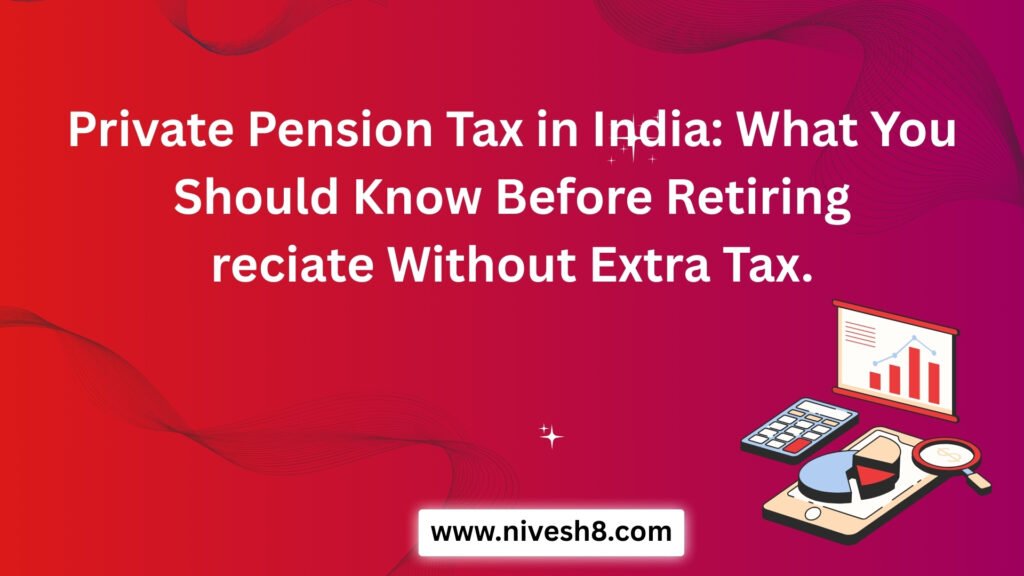Understanding taxes is crucial whether your plans call for retirement or you already receive a pension from a private company. Private pension tax and whether monthly pension income is fully taxable or not are topics that many people struggle to understand. This book will simplify everything for you so that, following retirement, you can better handle your money.
Definition of a Private Pension
The retirement income obtained from a private company or via private retirement plans such as:
- Corporate pension programs
- Superannuation monies
- System of National Pension for Private Workers
- Like annuities, insurance-based pension plans
Unlike government pensions, these are paid by private businesses or insurance companies rather than the government.
Is taxable private pension income?
Indeed, in most cases private pension tax is relevant. Under Indian tax laws, pension obtained from private sources is regarded as salary income—even after retirement. Private pensions come mostly in two varieties:
- Lump sum pension commuted
- One-time sum taken upon retirement
- Only partially tax-free if you came from a private company.
- One-third of the commuted pension is tax-free should gratuity be received.
- Half of it is tax-free should no gratuity be received.
- One-time sum taken upon retirement
- Monthly Income, Uncommuted Pension
- Monthly regular pension paid
- Entirely taxable under the head “Income from Salary.”
- Like salary earners, you can claim a standard deduction of ₹50,000.
- Monthly regular pension paid
For Illustration
Suppose in 2025 you left a private company.
Your commuted pension came at ₹6 lakh; depending on gratuity, ₹2 lakh may be tax-free.
As uncommuted pension, you get ₹30,000/month; overall, ₹3.6 lakh/year, fully taxable.
This income lets you claim ₹50,000 standard deduction.
NPS (Private Sector) Pension Tax
- Of the corpus pulled at retirement, sixty percent is tax-free.
- Forty percent used to purchase a monthly annuity; income from this is taxable.
How might one save tax on private pension claims using PPF, ELSS, etc.?
- Use Section 80D for premiums on health insurance.
- Section 80TTB (₹50,000) lets senior citizens claim extra interest exemption.
- File returns on schedule to escape penalties and claim qualified refunds.
Final Notes
Understanding private pension tax helps you better budget for your retirement. Although most pension income is taxable, applying deductions and exemptions will help to lower your tax load. See a tax advisor if necessary to maximize your post-retirement income.



